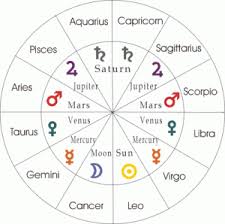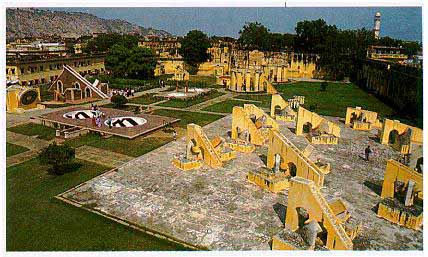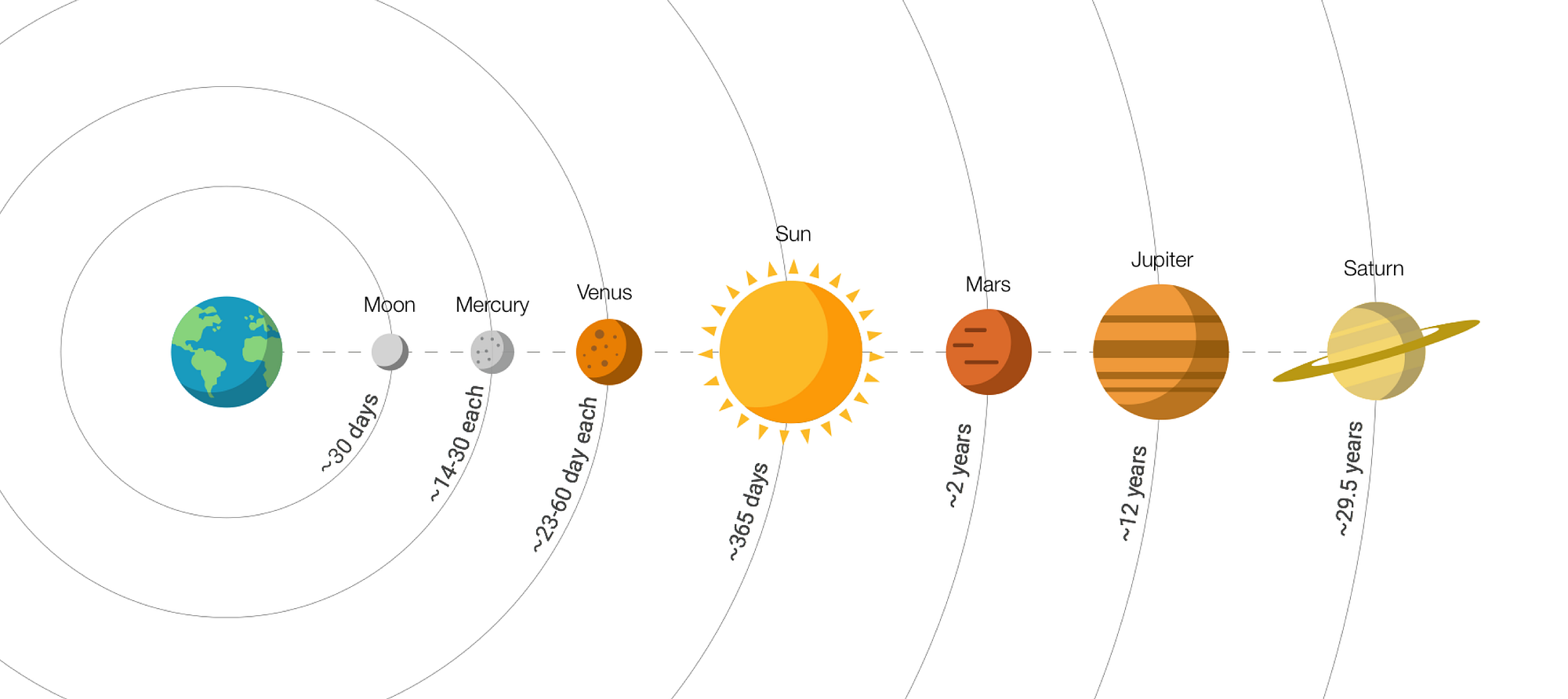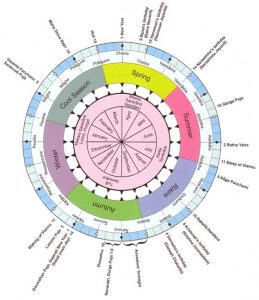Have you ever wondered about the origins of our familiar weekly schedule? Surprisingly, the days of the week we rely on today didn’t originate in the Western world. The question before us many times is “How does the Hindu calendar work”
An ancient Hindu system, find details in the remarkable Surya Siddhanta. This is an ancient Indian treatise on astronomy, traces its roots back to its origins. This intriguing provides insights into celestial movement. And also lays the foundation for the arrangement of our seven-day week. The celestial bodies that oversee each day’s creation serve as a guide for its naming.Embark on an enlightening journey that traverses through time

The fascinating story reveals unfold. How the movements of heavenly bodies and wisdom of the Surya Siddhanta influence the rhythm of our lives.
Also Read:
- The 9 Avatars of Durga: Practical Lessons In Mindfulness
- From Manu to Rama: Tracing the Mythic Lineage of Shri Ram
- Lord Hanuman Story: Divine Birth, Powers, and the Symbolism
The True Architects: India’s Role in Shaping the 7-Day Week
Many people think the seven-day week comes from Babylon, but it comes from India. “Ahoratra” comes from the Sanskrit language and means “day and night.” It means “one day.” The old Indian text Surya Siddhanta put the 7 grahas, the major celestial bodies visible to the human eye. The order is from slowest to fastest: the Sun, Moon, Mars, Mercury, Jupiter, Venus, and Saturn. Learn about the significance of the Hindu calendar and its impac with Vastu Tips


Each graha became connected to a day of the week. The Sun Graha ruled on Sunday. The Moon ruled on Monday, Mars on Tuesday, Mercury on Wednesday. The Jupiter on Thursday, Venus on Friday, and Saturn on Saturday. This seven-day cycle spread to the Middle East, and then the Romans used it. Giving each day of the week the name of one of their gods.
When the Germanic people of Northern Europe accepted the seven-day week, they changed the Roman god names. The names now referred to Germanic gods: Sun’s day, Moon’s day, Tiw’s day (Mars), Woden’s day (Mercury), Thor’s day (Jupiter), Frigg’s day (Venus), and Saturn’s day. Over time, these became Sunday, Monday, Tuesday, Wednesday, Thursday, Friday, and Saturday.
The 7 heavenly things that ancient people could see and how fast they seemed to move through the sky led to the 7-day week. It is a gift from India’s great astronomers. The 7-day series has been around for more than 2,500 years, even though the names of the days have changed. This makes it one of the oldest and most used ways to keep track of time.
Days of Cosmic Influence: The Celestial Origins of Each Weekday

The days of the week come from an old Indian system based on visible stars and planets. The day was named after the celestial body that moved the slowest. The day was named after the celestial body that drove the fastest.
- Saturn, or Shani in Sanskrit, is the slowest visible heavenly body. Saturn is the name of the first day of the week, which is Saturday.
- Jupiter, or Brihaspati in Sanskrit, is the next fastest. Jupiter is the name of the fifth day of the week, which is Thursday.
- Mars, or Mangala in Sanskrit, comes next, giving us Tuesday, the third day.
- The Sun, or Surya in Sanskrit, gives Sunday its name.
- The Moon, or Chandra in Sanskrit, gives us Monday, the second day.
- Venus, or Shukra in Sanskrit, gives us Friday’s sixth day.
- Mercury, known in Sanskrit as Budha, gives us Wednesday, the fourth day of the week.
The Vedas, which are old Hindu books, talk in-depth about the stars and planets and how they move. The Surya Siddhanta, an astronomy book from around 400 AD, put the days in order based on the positions of the planets and stars. This became part of the Hindu schedule and spread to Persia, the Middle East, and the West through cultural exchange.
Why there are seven days a week? Now, you know that the answer. It goes back over 1600 years to India and how our ancestors saw celestial things moving through the sky. Like many other things, the week has roots that go much more profound and bigger than most people know.

Hindu Insights into Arranging Days by Celestial Speed
Ancient Hindus were very interested in astronomy. They named the days of the week after the Sun, Moon, Mars, Mercury, Jupiter, Venus, and Saturn, which they watched closely. Instead of putting the days in order by chance, they put them in order by how fast each graha went through the sky.
Saturn was the most slow-moving graha, so Saturday is named after it. Jupiter moves faster, giving us Thursday, the Norse called Thor’s Day. Mars is even faster; Tuesday, which is Tiw’s day in Germanic cultures, stands for it.
The planets closer to the Sun go faster. Mercury moves quickly, the same as Wednesday (Woden’s Day). Venus, the world of love, named Friday, also known as Freya’s Day, after the Norse goddess of love.
The brightest things move the fastest. The rising and waning Moon gives us Monday (Mani’s Day in some languages), while the steady Sun gives us Sunday.
Also Read:
- Symbolism of Bells: The Divine Resonance, Sacred and Spiritual
- Akshaya Tritiya 2024: A Spiritual Guide to the Festival
The Cosmic Dance of Days: Hindu Astronomical Influence on the Week
Many languages and nations still use this order, from the slowest to the fastest stellar body. While Western astrology and astronomy have changed over time, the Hindu system of grahas lives on in the schedules we still use today.
From India, the seven-day week spread to the Middle East, Europe, and the rest of the world. The Hindu astrological system has a beautiful links between the universe and human life. It has influenced how societies have organized and made sense of time for hundreds of years.
Even though the names of the days have changed in some languages, the order of the days still reflects an old idea. That the Earth, Moon, Sun, and planets dance together in a way that keeps the heavenly beat going day after day and week after week. The pattern that the ancient Hindus saw is still there. It is a secret divine synchronicity that controls our lives as it did for our ancestors.
Eastern Origins, Western Adoption: Tracing the Global Journey of the 7-Day Week
The seven-day week came from India, not the West. The word “week” comes from “wise,” which means “turn” in Old English. This came from the Latin word “septimana,” which means “seven nights.” This came from the old Indian word “Saitama,” meaning “seven nights.”
India came up with the 7-day week cycle around the 6th century BCE. An old Indian book called the Surya Siddhanta set up the seven-day week. It puts the “seven grahas,” the seven major visible heavenly bodies, from slowest to fastest.
- Saturn (Saturday)
- Jupiter (Thursday)
- Mars (Tuesday)
- Sun (Sunday)
- Venus (Friday)
- Mercury (Wednesday)
- Moon (Monday)

This seven-day week from India spread to the Middle East and Europe. The Romans used to have an 8-day week, but finally, they switched to a 7-day week. When Germanic groups like the Anglo-Saxons and Vikings moved to Northern Europe, they accepted this 7-day week.
The growth of Christianity in Europe helped spread the idea of a seven-day week. According to the Christian Bible, God made the world in seven days, with the seventh day being a day of rest (Saturday, the Sabbath). Most European languages call Saturday “Sabbath day” and Sunday “Lord’s Day.”
Over time, trade, cultural exchange, and empire helped spread the seven-day week pattern worldwide. Everyone uses the same 7-day week today, but it comes from old India, not the West. When someone talks about “Western” or “Judeo-Christian” week, you can tell them of its Hindu and Vedic roots.
Also Read: Hair Care Tips for Monsoon Season: Caring for Crowning Glory
How Does the Hindu Calendar Work?
The Hindu calendar comes from a long time ago. It comes from the Hindu Vedas, which are about 5000 years old, and is still used in India and some places of Southeast Asia today. You can learn about an ancient and prosperous society by understanding how it works.

The Hindu calendar splits a day into 60 ghatikas, each ghatika is 24 minutes. Seven ghatikas make up a hora, and 15 horas make up an ahoratra, or a full day and night. The ahoratra, which has seven days, is where the word “week” comes from.
Chronicles of the Week: Unveiling the Significance of Each Day
In the Hindu calendar, the names of the seven days come from the seven visible heavenly bodies:
- Sunday – Ravi (Sun)
- Monday – Chandra (Moon)
- Tuesday – Mangala (Mars)
- Wednesday – Budha (Mercury)
- Thursday – Guru/Brihaspati (Jupiter)
- Friday – Shukra (Venus)
- Saturday – Shanivara (Saturn)
Month by Month: Exploring the Passage of Time through the Calendar
There are 12 months on the Hindu calendar. The stages of the Moon determine the lunar months, while the position of the Sun determines the solar months. The names of the months come from the signs of the zodiac or Hindu gods:
- Chaitra (March-April)
- Vaishakha (April-May)
- Jyeshta (May-June)
- Āshāda (June-July)
- Shraavana (July-August)
- Bhādra (August-September)
- Ashwina (September-October)
- Kartika (October-November)
- Margashirsha (November-December)
- Pausha (December-January)
- Māgha (January-February)
- Phālguna (February-March)
The Hindu calendar is ancient and complicated, with a long and fascinating past. You can learn about an old and exciting culture by understanding where it came from and how it works.
Also Read: Pitru Paksha Shradh 2023: 16 Days of Ancestor’s Worship
Conclusion
So, that’s where our seven-day week and the names we still use today came from. The ancient Indians paid close attention to the sky and set the stage for astronomy and keeping track of time that spread worldwide.
People often say that the Greeks and Romans shaped Western society. But, the Sanskrit scholars of old India were responsible for something as important as how we plan our days. They saw beauty and harmony in the dance of the stars and tried to bring that to Earth.
That is okay for a society that goes back over 5,000 years. The next time you look at your calendar, you’ll know it has a long past that has shaped something we often take for granted. Our week may not last forever, but in its way, it does.
Our Digital Imprints:
Namita Mahajan is a Womenpreneur,
Lifestyle Influencer | Empowering Women Self Reliance
Director: Nuteq Entertainment Pvt Ltd, and
Co-Founder: Trendvisionz – A Premier Digital Marketing Agency in India
Get Connected to us with our Newsletters-Transforming Lives… Creating the magic. Just – Believe ~ Practice ~ PerformBizTech Chronicle… Navigating Tomorrow’s Tech Frontiers 🚀
Join my LinkedIn Group: Digital Marketing, Content Creation World Group
Follow me on Twitter or LinkedIn. Check out my website.

